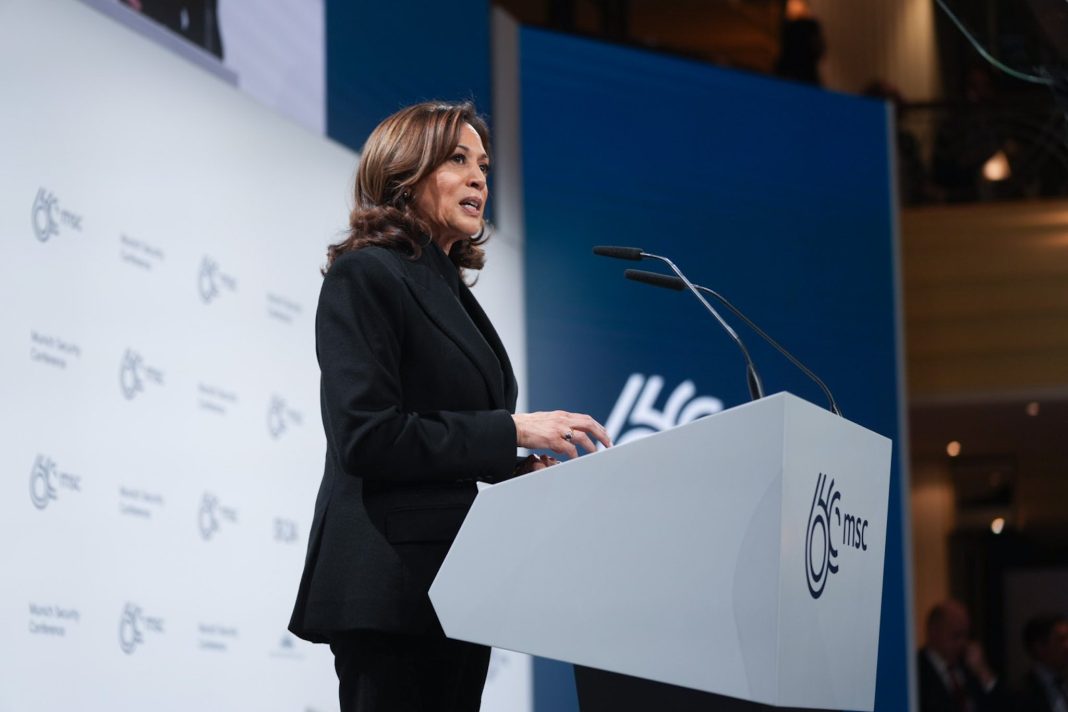Title: Criticisms of Biden’s Israel Policy Emerge from Within Democratic Party
Introduction:
The Biden administration’s policy towards Israel has faced criticism not only from uncommitted delegates but also from supporters of Vice President Kamala Harris. Recent incidents at the Democratic National Convention have highlighted the divisions within the party regarding Israel’s actions in Gaza. This article explores the perspectives of Harris delegates and the Uncommitted movement, shedding light on the challenges faced by those advocating for a change in policy.
Solidarity From Delegates:
During President Joe Biden’s address at the Democratic National Convention, a Harris delegate from Florida unfurled a banner reading “Stop Arming Israel.” The delegate faced physical attacks from other party members, including being hit on the head with signs. This incident demonstrates the lengths some Democrats are willing to go to silence dissent on Israel policy.
Jeremiah Ellison, an uncommitted delegate and Minneapolis City Council member, emphasizes the importance of building solidarity with Harris delegates. The Uncommitted movement aims to unite delegates in pushing for a permanent ceasefire in Gaza. Despite differences in tactics, the movement seeks to work alongside other strategies to amplify their message.
Accountability and Party Response:
Ellison calls for accountability from the Democratic Party regarding the treatment of delegates like Nadia Ahmad. He believes that tough conversations can take place within the party without resorting to violence or toxicity. The DNC political director, Brencia Berry, condemns physical violence and asserts that the party values diversity of thought and opinion.
Silencing Debate on Israel Policy:
Rebecca Abou Chedid, a board member of American Near East Refugee Aid, highlights the Democratic Party’s history of silencing debate on Israel policy. She points out the significant financial backing from pro-Israel groups in primary races targeting progressive incumbents who called for a ceasefire. Chedid emphasizes that this silencing has particularly affected Arab and Muslim Americans.
The DNC’s Efforts to Engage Muslim and Arab Voters:
Berry acknowledges that the party is actively pursuing the Muslim and Arab vote, indicating that they do not take it for granted. However, Chedid argues that while the DNC held a panel on Palestinian human rights, Palestinian voices are not given prominence on the main stage or during primetime. The ongoing bombings in Gaza underscore the urgency of addressing the issue.
Broader Suppression of Debate:
Michigan superdelegate Liano Sharon, a Jewish Democrat, points out that the party has also suppressed debate on other topics like universal healthcare, which he believes is connected to the destruction in Gaza. Sharon suggests that dissent on issues affecting people’s lives is often silenced when it conflicts with the desires of donors.
Conclusion:
The criticisms of the Biden administration’s policy towards Israel are not limited to external voices but also come from within the Democratic Party. The incidents at the Democratic National Convention highlight the challenges faced by those advocating for a change in policy. It is crucial for the party to address these concerns, foster open dialogue, and ensure that diverse perspectives are heard and respected.


